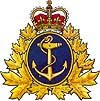
I will always remember with fondness and appreciation, the years that I spent working at Powertrend Cycles in Dartmouth, NS. I was employed as a mechanic and occasionally doubled as a parts person as well. My boss was Garnet Hill, who is arguably in my humble estimation, one of the very best wrenches in the Maritime provinces. His intrapersonal skills were never truly developed, which is why I was normally singled out by him to be the company rep for the media and TV folks. Between our shop and being area rep for the Nova Scotia Ride For Sight, I was actually somewhat of a minor local celebrity. He reinforced what I had learned through my formal training at the American Motorcycle Institute (AMI) in Daytona Beach, FL. He mentored me in the trade and showed me what customer service was about in our business.
You have to understand that those who work in an aftermarket motorcycle shop, have a vastly different view of their customers than dealerships do. Dealerships regard their customers simply as walking wallets. I used to believe this was a condition particular to Harley-Davidson dealerships, but have since learned to my chagrin, that it applies to any brand out there. We were of course, an aftermarket shop. We built high-dollar custom motorcycles from the frame up for customers, long before any of these 'reality bike-builder shows' were ever in existence. We obviously also did repairs, maintenance and customizing work for fellow riders, regardless of what brand they rode. True, we did specialize in Harleys, but as any good shop would, we worked on anything with two wheels.
The care and attention involved in crafting a custom motorcycle for a customer, can best be compared to walking into a fine tailor shop and having a suit custom-made for you. It begins with choosing the frame itself. Everything revolves around the end use of the bike itself. What type of riding will the customer be doing? Is this simply going to be a bare-bones bar-hopper, meant only for wowing the patrons of the local watering holes? Is this going to be a distance bike, made for either solo or two-up long range touring? Is it going to be a daily ride? A commuter? How tall is the rider? Is he "vertically challenged" or is he a long streak of misery? You wouldn't allow a customer to choose a standard frame if you knew he was going to end up riding with his knees under his chin. You'd want a frame with a little amount of stretch to it. You could add to that by installing forward controls, which would allow a taller rider to stretch out in comfort while on the road.
The rake of the frame's neck is equally important, as is the selection of forks employed. The shorter the rake, the quicker the steering response. This is particularily useful with heavier bikes and coping with the demands of in-town riding. A longer rake will kick out the front wheel, allowing the bike to track solidly on the open road. The secret is to strike the perfect balance. To give the bike the handling characteristics he wants, while retaining to look and attitude he wants the bike to convey. We would help him choose the powerplant, stock or custom built, the tranny, the wheels, the tires, the brake system, the brake lines, the oil lines, the fuel lines, the exhaust, the carb, the air cleaner, the oil pump, the starter, the voltage regulator, the bars, the controls, the mirrors, the tank, the fenders, the swingarm, the lights, the pegs, the grips, the side covers, the seat. We would even consult him on which stator he would require, based on it's output and what type of accessories he wanted to run on the bike (lights, heated riding apparel, GPS, radio, intercom...).
The frame is sprung by the forks and shocks. These will greatly influence not only the ride comfort, but the handling of the bike as well. Stock fork springs are okay for some applications, but we never used them. We always opted for premium materials. Why? Our reputation went out the door with every single bike we built or worked on. That is perhaps the largest and most singular difference between dealerships and "bike shops".
A good motorcycle shop's reputation is everything. Their business, their livelihood, their very existence depends on the quality and competency of service that they offer. The reputation a shop developes will dictate whether they flourish or die. Shops operate on word of mouth advertising. Our shop routinely had riders appear on our doorstep, from all over the continental United States and Europe, based simply on the verbal recommendation of another rider.
You have to understand that those who work in an aftermarket motorcycle shop, have a vastly different view of their customers than dealerships do. Dealerships regard their customers simply as walking wallets. I used to believe this was a condition particular to Harley-Davidson dealerships, but have since learned to my chagrin, that it applies to any brand out there. We were of course, an aftermarket shop. We built high-dollar custom motorcycles from the frame up for customers, long before any of these 'reality bike-builder shows' were ever in existence. We obviously also did repairs, maintenance and customizing work for fellow riders, regardless of what brand they rode. True, we did specialize in Harleys, but as any good shop would, we worked on anything with two wheels.
The care and attention involved in crafting a custom motorcycle for a customer, can best be compared to walking into a fine tailor shop and having a suit custom-made for you. It begins with choosing the frame itself. Everything revolves around the end use of the bike itself. What type of riding will the customer be doing? Is this simply going to be a bare-bones bar-hopper, meant only for wowing the patrons of the local watering holes? Is this going to be a distance bike, made for either solo or two-up long range touring? Is it going to be a daily ride? A commuter? How tall is the rider? Is he "vertically challenged" or is he a long streak of misery? You wouldn't allow a customer to choose a standard frame if you knew he was going to end up riding with his knees under his chin. You'd want a frame with a little amount of stretch to it. You could add to that by installing forward controls, which would allow a taller rider to stretch out in comfort while on the road.
The rake of the frame's neck is equally important, as is the selection of forks employed. The shorter the rake, the quicker the steering response. This is particularily useful with heavier bikes and coping with the demands of in-town riding. A longer rake will kick out the front wheel, allowing the bike to track solidly on the open road. The secret is to strike the perfect balance. To give the bike the handling characteristics he wants, while retaining to look and attitude he wants the bike to convey. We would help him choose the powerplant, stock or custom built, the tranny, the wheels, the tires, the brake system, the brake lines, the oil lines, the fuel lines, the exhaust, the carb, the air cleaner, the oil pump, the starter, the voltage regulator, the bars, the controls, the mirrors, the tank, the fenders, the swingarm, the lights, the pegs, the grips, the side covers, the seat. We would even consult him on which stator he would require, based on it's output and what type of accessories he wanted to run on the bike (lights, heated riding apparel, GPS, radio, intercom...).
The frame is sprung by the forks and shocks. These will greatly influence not only the ride comfort, but the handling of the bike as well. Stock fork springs are okay for some applications, but we never used them. We always opted for premium materials. Why? Our reputation went out the door with every single bike we built or worked on. That is perhaps the largest and most singular difference between dealerships and "bike shops".
A good motorcycle shop's reputation is everything. Their business, their livelihood, their very existence depends on the quality and competency of service that they offer. The reputation a shop developes will dictate whether they flourish or die. Shops operate on word of mouth advertising. Our shop routinely had riders appear on our doorstep, from all over the continental United States and Europe, based simply on the verbal recommendation of another rider.
They kept coming back because we offered true, actual customer service which was unparalelled. I washed every bike I ever worked on. Both before and after. I remember one Saturday where I stayed 5 hours after closing, replacing the rear drive belt on a bagger that had been pushed uphill by some patchholder from PEI. I did so because the Harley dealership down the hill had closed their door in his face at precisely 1:00p.m. I did so because you never leave a fellow rider twisting in the wind, when he breaks down miles and miles away from home. I made sure that he was safely on his way before I ever thought of going home. Did I have to? Hell, no... our service department wasn't even open that day. We never were on Saturdays. But in the name of providing service when service was needed? I really didn't have a choice, now did I?
I once paid hard cash out of my own pocket to replace a customer's front wheel, because I nicked the chrome while changing out the front tire. My mistake, my responsibility... That's how we worked. We were accountable to our clients. I routinely allowed customers to watch me work on their rides. It was understood that they could ask me anything they wanted. It was also understood that if I had to stop to answer them, the clock didn't. They were always fine with this. I would go so far as explaining what I was doing and why I was doing it. It developed a bond between myself and our clients. I wanted them to see the care, the expertise that was given to their bikes when they entrusted us with them.
I once paid hard cash out of my own pocket to replace a customer's front wheel, because I nicked the chrome while changing out the front tire. My mistake, my responsibility... That's how we worked. We were accountable to our clients. I routinely allowed customers to watch me work on their rides. It was understood that they could ask me anything they wanted. It was also understood that if I had to stop to answer them, the clock didn't. They were always fine with this. I would go so far as explaining what I was doing and why I was doing it. It developed a bond between myself and our clients. I wanted them to see the care, the expertise that was given to their bikes when they entrusted us with them.
They were giving us their pride and joy to work on, confident that it would be returned to them in far better condition than when they left it. We always ensured that their trust was well placed. Yes, they were customers, but they were also fellow riders who eventually became fast friends. That is the industry I worked in and that is the benchmark I use, when I open my mouth and sound off on customer service. I do so not simply from the viewpoint of a disgruntled customer, but from the viewpoint of someone who also worked the other side of the counter and actually has some idea of what real customer service is all about.
















No comments:
Post a Comment